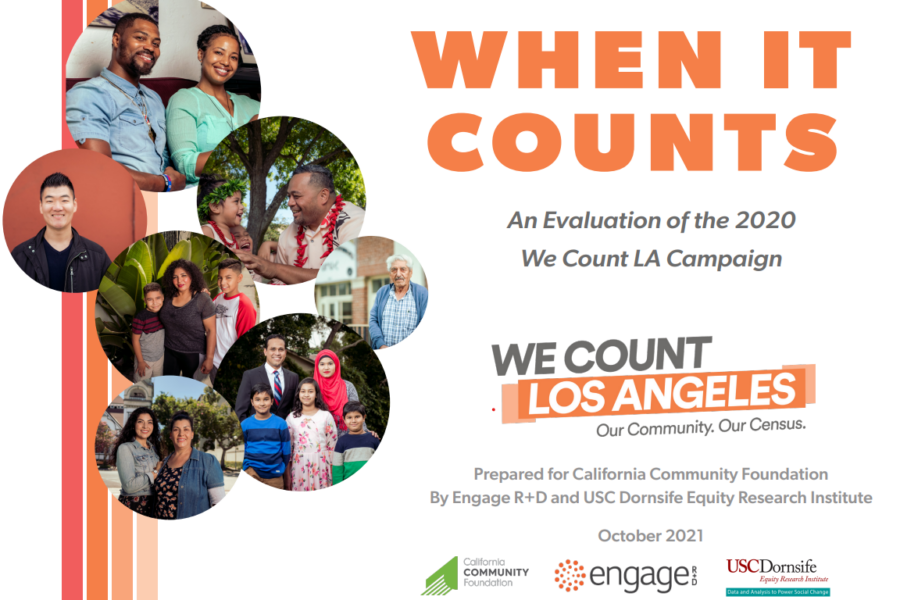Prepared for California Community Foundation by Engage R+D and USC Dornsife Equity Research Institute
October 2021

Los Angeles County has historically lagged behind the state in previous census counts not only as the nation’s most populous county but also due to the diversity of its population. This report highlights noteworthy attributes and assets of the We Count LA (WCLA) campaign that provide valuable insights for future census counts and large-scale civic engagement efforts. In fact, some of these lessons have already been applied to the state’s COVID rapid response and vaccination campaign. The WCLA campaign exemplifies the power of partnerships and a robust ecosystem of trusted messengers, community organizers, and networked allies to ensure those most at-risk of exclusion and the adverse impact of the pandemic are reached.
We Count LA provides important lessons for philanthropic strategies that take a community capacity-building approach to achieve a common goal. Recommendations for building on the region’s readiness for the road ahead are:
- Massive engagement campaigns like the census require considerable planning and coordination.
Trust is a fundamental building block for civic engagement and census participation. Trusted messengers, community organizing, and ongoing civic engagement are key ingredients to build social capital and restore trust. - Strategic communications, tailored messaging and continuous surround sound are critical components of census outreach and education.
- The census is part of a civic engagement arch and a critical opportunity to build durable long-term capacity, power, and civic infrastructure.
- The census and other large-scale civic engagement efforts require a robust ecosystem of cross-sector partners.
Download report
When it Counts: An Evaluation of the 2020 We Count LA Campaign



